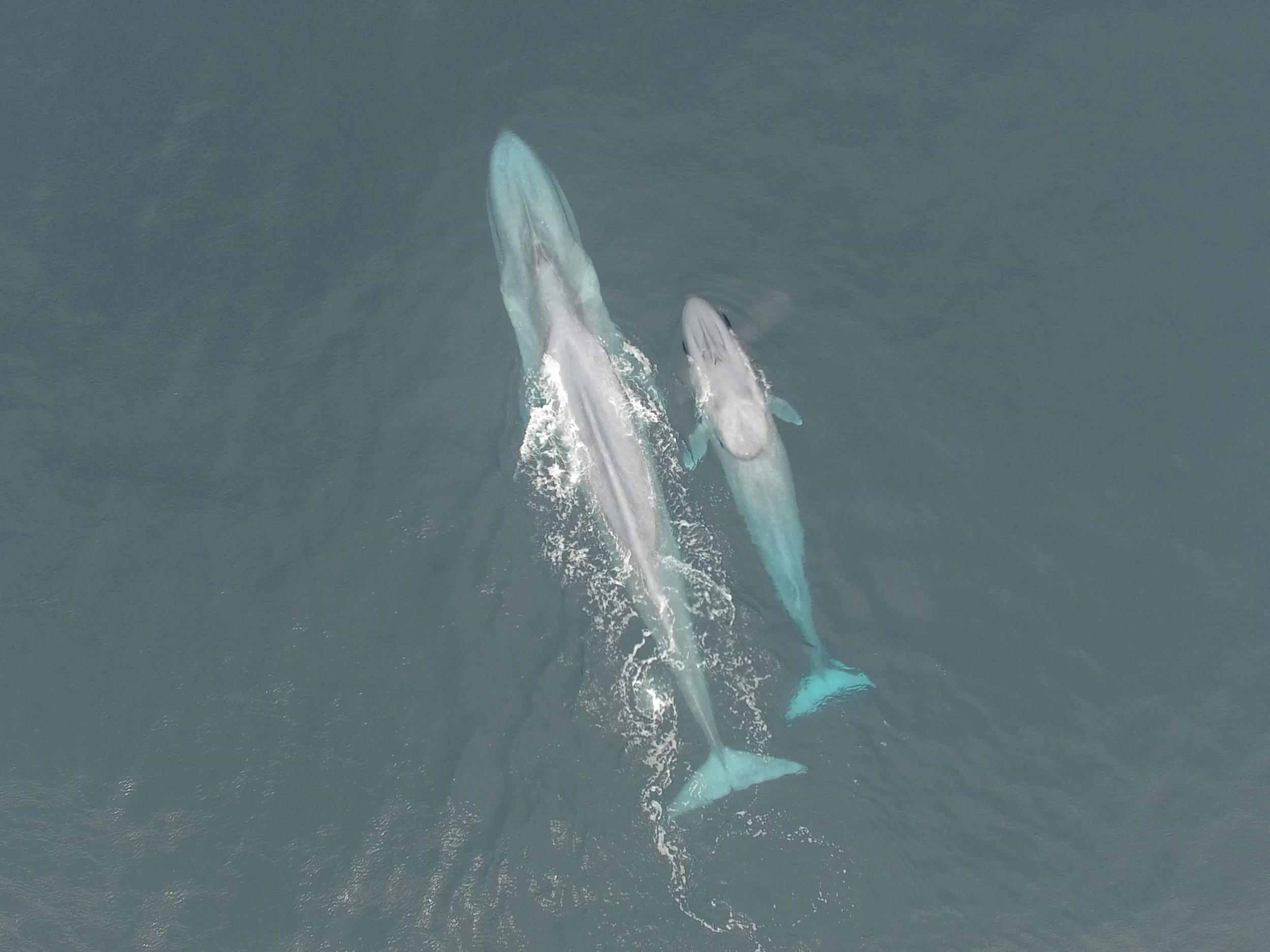Military sonar disturbs blue whales’ feeding, research reveals
At greater depths giant creatures stop feeding and many flee area

High-intensity military sonar can have a major impact on the feeding habits of blue whales, scientists have concluded after a a five-year project to track the endangered species' behaviour.
The majority of whales would immediately stop feeding on deep patches of krill when they encountered sonar, and many fled the area, a research team from the University of California found.
“We wanted to understand better what the common behavioural responses are in blue whales when they are exposed to sonar,” said Dr Brandon Southall, who led the study.
The acoustic frequencies used in sonar systems vary from very low (infrasonic) to extremely high (ultrasonic). It is thought some sonar systems could interfere with sea animals’ echolocation and have previously been linked with whales beaching, as well as disrupting feeding and mating.
In order to record the whales’ behaviour, Dr Southall and 14 colleagues embarked on a marathon tracking programme to stick suction-mounted sensors onto the animals.
Whale penis, stuffed squirrels and Michael Jackson costume at auction
Show all 13“The ocean is a big place and it can be easy to miss and lose even the biggest animals ever on the planet, but, because they are so large and have very tall blows, they are actually among the easiest marine mammals to track,” he said.
Despite the daunting size of the creatures, Dr Southall said the scientists manoeuvred to less than five metres from the whales in a small inflatable boat to attach the suction tags, which were then able to record and relay the animals' depth, movements and sounds in the water.
Once the tags were attached and six trained observers were in place to confirm the animal's movements at the surface, the team generated sonar signals from a boat located about half a mile away for between 30 minutes to an hour.
During this time, they monitored the animals' reactions, first as the sonar became louder and then after the noise ceased. They also used echosounders to track krill when conditions permitted, to get a better idea of when and where the whales were in relation to their food.
The team recorded whales’ responses to 42 sonar tests over five years.
When the results were logged, statistical ecologist Stacy DeRuiter of Calvin College, Michigan, led a team analysing the information logged by the tags, which Dr Southall then combined with observations at the surface, to look for patterns and potential changes in the whales' behaviour.
The majority of the deep-diving whales stopped feeding when the sonar signals began. In addition, some of the animals that had stopped feeding turned and headed away from the sonar emitter, although most resumed their activities soon after the sonar stopped.
But those whales near the surface generally didn't respond at all, even when the sonar was loud and nearby.
After the findings were published in the Journal of Experimental Biology, Dr Southall admitted he was surprised by how different the whales' reactions were.
He said: “Some whales responded when the sound was barely audible, while others seemingly ignored it and kept feeding at quite loud levels.”
This, he added, was a “really big deal”.
“The current management approaches rely very heavily on the amplitude level to predict response', he said.
However, Dr Southall said the activity the whale is engaged in seems to have a larger impact on the degree to which the sonar disrupts its behaviour.
“Impacts could be minimised by reducing sonar disturbance during periods of blue whale foraging on deep patches of krill in the military's main training areas,” he said.
Subscribe to Independent Premium to bookmark this article
Want to bookmark your favourite articles and stories to read or reference later? Start your Independent Premium subscription today.

Join our commenting forum
Join thought-provoking conversations, follow other Independent readers and see their replies